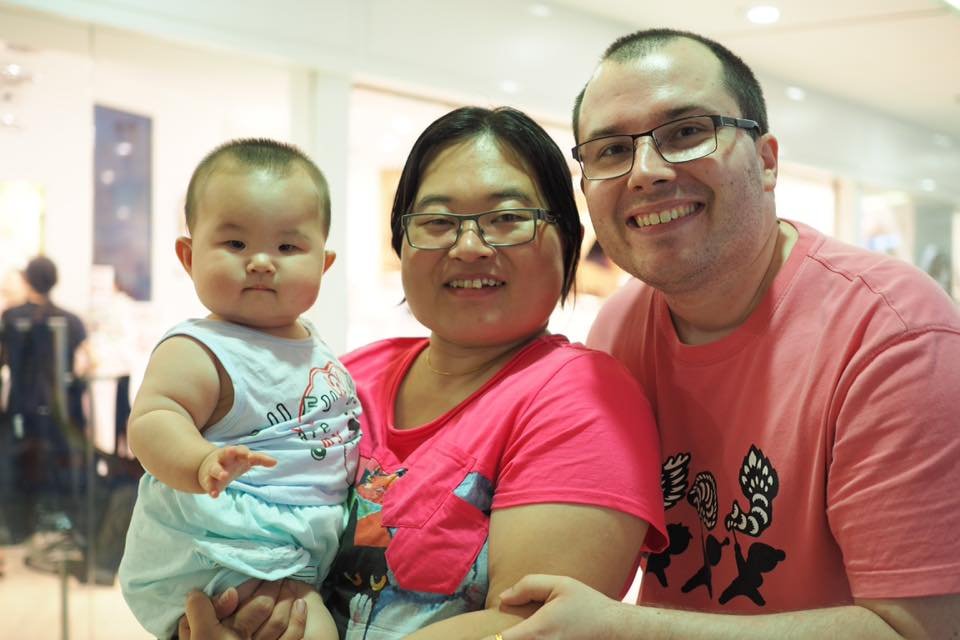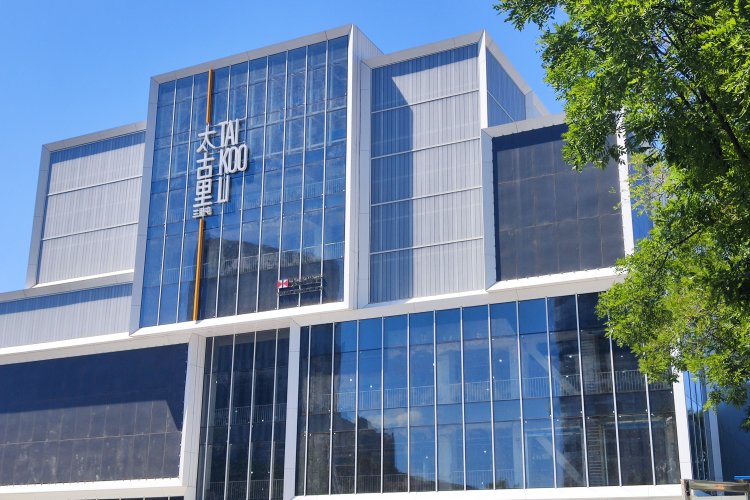Wellness Wisdom: Dr. Wendy Wen's Proactive Women's Guide to Keeping Healthy in Beijing

This post is sponsored by Sanfine International Hospital, offering state-of-the-art care and world-class service in the heart of Sanlitun.
Young husbands like myself, who are in the midst of serious conversations with their wives about starting a family, are bound to have many questions for a doctor like Wendy Wen. The renowned obstetrician has 40 years of experience and has been profiled by CCTV and several other Chinese media outlets because of her breakthrough techniques. She now works as a Chief Physician at Sanlitun’s new Sanfine International Hospital.
As Dr. Wen and I begin our discussion about women’s health, she recalls the work that garnered her so much acclaim and media attention. In the late 1980’s, during the height of China’s One-Child policy, many young mothers opted to have tubal ligation operations in order to avoid future pregnancies. That procedure may have seemed prudent at the time, but it only compounded tragedy for any parents who lost their only children to illness or accidents, leaving them to not only mourn their little ones but also the end of their family line.
Fortunately, many of those grieving parents could turn to Dr. Wen. During that period she was the first doctor to successfully use tubal anastomosis microsurgical procedure, a new technique at the time that allowed women who had undergone tubal ligation to become pregnant again. Since then the operation has become commonplace and now has a 90-percent success rate.
“People have told me that the operations saved their family, which made me very proud,” she says.
Dr. Wen has also taken equal satisfaction from helping struggling young couples achieve pregnancy for the first time. In several cases, she has not only found herself applying the latest innovative fertility science, but also moral support. The latter is especially needed for aspiring mothers contending with mothers-in-law who blame them for not being able to conceive. When Dr. Wen is able to reassure those aspiring grannies, help the young women boost their fertility, or even ascertain that the husband’s sperm is what needs treating, her patients are quick to express their relief and gratitude. “Many of these young women have told me ‘Thank you for rescuing me!’” Dr. Wen says with a smile.

While I can certainly relate to these accounts, my wife Linlin and I have even more worrisome concerns as we mull over starting our own family. My mother-in-law had a health scare in 2013, when doctors thought that she might have been afflicted with ovarian cancer. Subsequent checkups revealed that she only had benign tumors in her ovaries, which were removed after a fairly simple operation. Such ovarian tumors have been somewhat common in her family over the years, leaving me to worry about the overall health of my wife in the future, and whether or not she may suffer complications during pregnancy.
“My Mom and her younger sister, my auntie, both had this problem,” Linlin tells me, adding: “Neither of them got cancer from it, because they were lucky to find out about it early. So I try to stay healthy by eating well, doing lots of yoga and more. But most importantly, I want to get checkups for my ovaries every year to make sure I’m safe.”
Dr. Wen agrees that proactivity is the key to overcoming such issues. She goes on to describe a state of the art gynecological examination system at Sanfine International Hospital which can assess patients’ fallopian tubes and ovaries at a magnification of 40 times, helping doctors diagnose cysts, tumors and other issues.
“If we can diagnose such things in the early stages, then that can help us prevent cancer or other serious afflictions from happening,” Dr. Wen says, adding that Sanfine has a special advantage in this regard: “Several hospitals have this examination machine, but we’re not a public hospital, so you will not have to wait in a long queue with many other patients for this examination.”

Aside from addressing the pregnancy concerns of many patients, Dr. Wen also spends a considerable amount of time focusing on the health needs of younger women and teenage girls. The doctor says a key modern issue for young girls is nutrition and food safety, and she adds that those concerns can link back to her other areas of expertise, as an obstetrician and gynecologist, in surprising ways.
“Many foods are made up of unhealthy ingredients nowadays – this can sometimes make puberty start earlier and lead to genital infections and other issues,” Dr. Wen explains. “So much of our food today is over processed, with additives and rubbish that can have adverse effects on hormones. So food security is a big issue these days.”

These dangers have led many parents in Beijing to educate themselves about nutritional risks and adopt healthy habits early on for themselves and their children. Xuan Gao and her husband Ian Devlin, who both reside in Beijing’s Tongzhou suburb, have taken many precautions for their infant daughter, Sophie.
“I avoid using formula and breastfeed exclusively,” Gao says, adding that she and her husband decided to switch to organic, non-GMO, and whole food vitamins for Sophie. Devlin says he and his wife have taken similar naturalistic measures in their daughter’s diet, although he admits that the process hasn’t been easy: “We have concerns about food safety, so we have experimented with organic food. We went to BHG for our organic food, but it was a little pricey. We also have organic food online that an American doctor working for one of Beijing’s international hospitals recommended. And when my mother-in-law purchases groceries she finds produce from local gardeners.”
Dr. Wen says such healthy habits can not only benefit children, but also mothers who put those measures into practice. So long as parents remember to eat smartly while encouraging their daughters to do the same, they can also avoid a host of hormonal and nutritional issues. She adds: “You have things like bone density, osteoporosis and hip problems, which tie into nutrition. There are also uterine issues, and even Alzheimers, that may be related to hormone deficiencies. Diet is a factor in all of that.”
Theresa Ahdieh – a 48-year-old Beijing expat since 2011 and a mother of both a 17-year-old daughter and a nine-year-old son – agrees that diet is a major concern for all women in the Capital, especially those her age. “I think about what I put in my body for food and liquid on a daily basis,” she says, adding that little things like avoiding soda and drinking plenty of water make a huge difference. But she says exercise factors even larger in her outlook, adding: “I am now starting to get joint stiffening in my hands, so daily stretching with my hands is very important. I try and do yoga or some kind of stretching three times a week.”

Dr. Wen is intimately familiar with the health concerns of these women and their families: “The average lifespan for a woman is now 74 years old, but many women live into their 80’s, more than 30 years after menopause. [This is why] we are experts in women’s health in all stages of their lives," she says.
This widening range of age and lifestyle-related health concerns also reflect the versatility and depth of Dr. Wen's expertise. From her early, pioneering work dealing with fertility issues, to more recent endeavors in cancer screening, wellness, nutrition and more, she manages to do it all with a refreshingly personable touch and a humble sense of gratitude. "I think it is crucial for not only my patients, but also myself, to focus on every aspect of women’s health. I'm glad to have the opportunity to do so at Sanfine."
Come and check out what Sanfine has to offer. For more information on the hospital, its services and doctors, click here.
Photos: Uni You, courtesy of Ian Devlin, Theresa Ahdieh, Kyle Mullin, and Christopher F Photography (Flickr)







